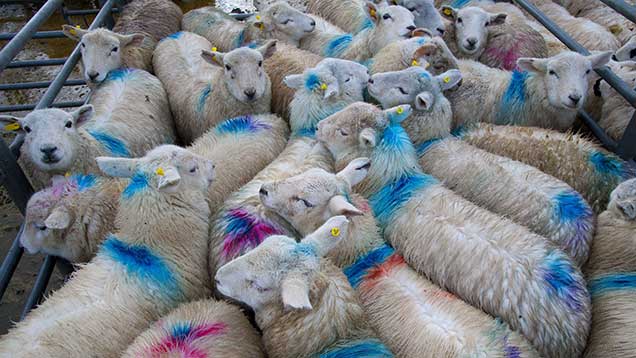Opinion: Production will plummet without coupled subsidies
 © FLPA/Rex Shutterstock
© FLPA/Rex Shutterstock My wheat harvest is in store and valued at £110/t (about 70% of the cost of growing it). My fat cattle are fetching about £1,200/head (about 60% of the cost of producing them). I am about to send 1,000 store and breeding sheep to my local sheep fair. My heart is in my mouth about what they will make.
It wasn’t supposed to be like this. Like me, you must remember all those analysts, and even our incurably optimistic industry leaders, predicting that the relentless growth in the human global population would by now have created a demand for food that would drive agricultural commodity prices higher?
See also: Farm rent review hostilities commence
But then those confounded Americans invented something called “fracking” which now looks like keeping the world in cheap oil for at least another 20 years. This has put the financial skids under renewables, which in turn has relieved the pressure on food production as land required to grow biofuels is once more available to grow food.
Then President Putin punished the EU for censuring his land grab in Ukraine and banned all EU food imports into Russia. Now the Chinese economy has caught a cold and all the bullish predictions about EU milk products, pork and grain exports to that country are shattering like a Ming vase dropped from a great height.
“My heart is in my mouth about what my sheep will make” Stephen Carr
This perfect storm bearing down on UK farm incomes is compounded yet further by the local difficulty of sterling’s strength against the euro. This has driven UK farmgate prices ever lower this year and will also have a negative impact on the value of the SFP – if our various UK national governments and assemblies can ever agree various methods of paying it to us.
With this high level of financial distress currently being endured by UK farmers, the big question is for how long will it be before production plummets? We already import 45% of our food. Since the decoupling of subsidies in 2005 it has been remarkable how determined we have all been to continue producing food in the face of ongoing trading losses.
If the English Beef and Lamb Executive’s annual Business Pointers survey is to be believed, hardly a single British beef or lamb producer has returned a profit in 10 years. The milk price is volatile but generally disastrous for most dairy farmers. Grain prices have also been volatile since 2005 but, again, growers on all but the best land have very often been sacrificing their SFP receipts to subsidise their own production. And yet beef and lamb production has only fallen marginally, milk production has risen, and grain production has remained stable.
I’ve long argued that the EU’s experiment with free markets in food production and the removal of the link between subsidy and production is mistaken. European farmers are never going to be competitive with New World producers in terms of scale or with developing world producers in terms of labour costs or the ability of such countries to endlessly devalue their currencies.
There are, of course, signs that after 10 years of decoupled madness a rethink is in progress in political and policy-making circles. The reformed CAP allows for recoupling and the Scots have reintroduced headage payments for beef cattle and sheep. Let us hope that we soon have more of the same across the rest of the UK.
In the meantime, cows have been let loose in supermarket aisles, and British tractors have been blocking main roads and blockading dairy processors. Lamb producers in Wales have been on a production strike, and a British delegation of farmers has joined a rioting mob of angry paysans in Brussels.
We all carry on producing, but, without a coupled subsidy to make our production profitable, for how much longer?
Stephen Carr farms an 800-ha sheep, arable and beef farm on the South Downs near Eastbourne in partnership with his wife Fizz. Part of the farm is converted to organic status and subject to a High Level Stewardship Agreement.

